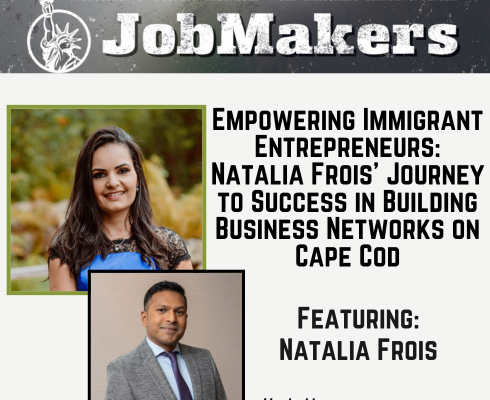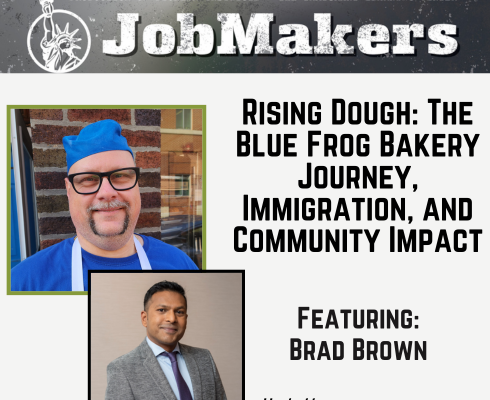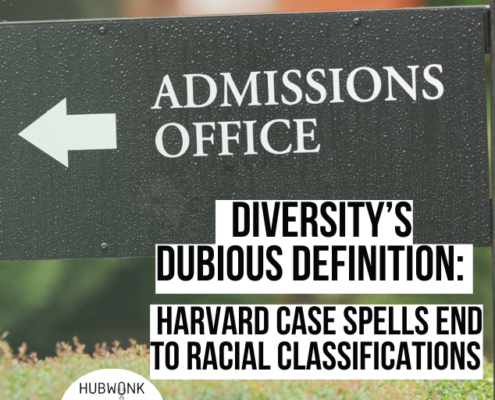Amar Sawhney on Sikhs, STEM & COVID
The entrepreneurial spirit among immigrants and refugees allows them the flexibility to pursue unexpected courses of action, adapt, accept risk and make the most of opportunities they didn’t even know of before. For Dr. Amar Sawhney from India, that started at the University of Texas at Austin with 30 job rejections out of 30 applications. But he charted a path that would see him go in directions hitherto unknown to him: getting a PhD, helping found a company, journeying to Boston, and starting a string of new companies, using his chemical engineering background to save lives through remarkable local therapy innovations. To date, he has founded eight companies accounting for 4,000 jobs and more than $2 billion in revenue. He’s been named a “Champion of Change” by The White House, one of the “five most innovative Medical Device CEOs” by MassDevice, the EY regional entrepreneur of the year, The Immigrant Learning Center’s own Immigrant Entrepreneur Awardee for Life Science Business. But his influence extends well beyond that space into environmental conservationism, safeguarding refugees, mentoring and promoting STEM education, and building public understanding of America’s Sikhs, as you’ll hear in this week’s episode of JobMakers.
Guest:
 Amarpreet Sawhney, Ph.D., is the Chairman and CEO OF Instylla Inc which is developing new liquid embolics for tumor embolization and hemostasis. He is also CEO of Rejoni Inc., which is developing products to prevent adhesions following gynecological interventions. Previously he was President and CEO of Ocular Therapeutix, Inc. (OCUL: NASDAQ) a company focused on unmet needs in ophthalmic drug delivery. He was also the Chairman of Augmenix, Inc. (acquired by Boston Scientific), Founder and CEO of Confluent Surgical (acquired by Covidien), the Chairman of MarketRx (acquired by Cognizant), a provider of pharmaceutical marketing and sales analytics and intelligence, technology founder of Focal, Inc. (acquired by Genzyme) and Access Closure Inc. (acquired by Cardinal Health). He holds over 120 patents, which form the basis for several first-of-a-kind medical devices that have helped over 5 million patients worldwide. He has founded eight companies, which account for over 4,000 jobs created and over $2 billion in revenue to date. Dr. Sawhney helps foster entrepreneurship by mentoring young innovators and creating companies through Incept, a medical device incubator. He is a member of the board of directors of EcoSikh, Axtria, Imperative care, Instylla, Rejoni, Tulavi, and Incept LLC. He is on the advisory board of the MIT museum. Dr. Sawhney is passionate about education, wildlife, and environmental causes, which he is involved in supporting through his family foundation. Dr. Sawhney has been recognized by several awards including being named the “Champions of Change” and “Outstanding American by Choice” awards by the Whitehouse, “Five most innovative Medical Device CEOs” by MassDevice, MassMedic best startup company award, Frost and Sullivan Product innovation award, MIT Global Indus Technovators Award, the E&Y regional entrepreneur of the year award, Mass High Tech All Star award, TiE Star award, the University of Texas Outstanding Young Engineering Graduate award, and the Indian Institute of Technology Delhi Distinguished Alumni award. Dr. Sawhney holds a Ph.D. and M.S. in Chemical Engineering from the University of Texas at Austin and a B.Tech. in Chemical Engineering from IIT Delhi.
Amarpreet Sawhney, Ph.D., is the Chairman and CEO OF Instylla Inc which is developing new liquid embolics for tumor embolization and hemostasis. He is also CEO of Rejoni Inc., which is developing products to prevent adhesions following gynecological interventions. Previously he was President and CEO of Ocular Therapeutix, Inc. (OCUL: NASDAQ) a company focused on unmet needs in ophthalmic drug delivery. He was also the Chairman of Augmenix, Inc. (acquired by Boston Scientific), Founder and CEO of Confluent Surgical (acquired by Covidien), the Chairman of MarketRx (acquired by Cognizant), a provider of pharmaceutical marketing and sales analytics and intelligence, technology founder of Focal, Inc. (acquired by Genzyme) and Access Closure Inc. (acquired by Cardinal Health). He holds over 120 patents, which form the basis for several first-of-a-kind medical devices that have helped over 5 million patients worldwide. He has founded eight companies, which account for over 4,000 jobs created and over $2 billion in revenue to date. Dr. Sawhney helps foster entrepreneurship by mentoring young innovators and creating companies through Incept, a medical device incubator. He is a member of the board of directors of EcoSikh, Axtria, Imperative care, Instylla, Rejoni, Tulavi, and Incept LLC. He is on the advisory board of the MIT museum. Dr. Sawhney is passionate about education, wildlife, and environmental causes, which he is involved in supporting through his family foundation. Dr. Sawhney has been recognized by several awards including being named the “Champions of Change” and “Outstanding American by Choice” awards by the Whitehouse, “Five most innovative Medical Device CEOs” by MassDevice, MassMedic best startup company award, Frost and Sullivan Product innovation award, MIT Global Indus Technovators Award, the E&Y regional entrepreneur of the year award, Mass High Tech All Star award, TiE Star award, the University of Texas Outstanding Young Engineering Graduate award, and the Indian Institute of Technology Delhi Distinguished Alumni award. Dr. Sawhney holds a Ph.D. and M.S. in Chemical Engineering from the University of Texas at Austin and a B.Tech. in Chemical Engineering from IIT Delhi.
Get new episodes of JobMakers in your inbox!
Browse recent episodes of Pioneer podcasts:















